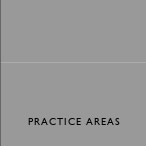Things You Don't Have To Do During an FAA Investigation |
You donít have to talk to the FAA. The FAA encourages pilots to talk about the incident they are investigating. The encouragements include inviting you to respond to a letter of investigation or asking the pilot to call the tower after landing.
READ
MORE |
 |
An Interpretation of the Pilotís Bill of Rights |
Since 2012, the Pilotís Bill of Rights has influenced FAA enforcement investigations in many ways. The NTSB, in its capacity as the administrative court of appeal for FAA enforcement actions, has taken an opportunity to interpret an important aspect of the law.
READ
MORE |
 |
Pilot's Bill of Rights Becomes Law |
In August, 2012, the federal government enacted Public Law 112-153, known as the PilotÔŅĹs Bill of
Rights. It contains various improvements to the aviation regulation and enforcement system to
enhance fairness and efficiency.
READ
MORE |
 |
You Can Rely on What the FAA Says . . . or Not? |
A recent opinion from the NTSB demonstrates the complexity of proving that actions were taken in reliance on oral instructions. In this case, the airman prevailed over the FAA; were the evidence not as strong, the decision could have easily gone the other way.
READ
MORE |
 |
FAA
Medical
Certificate
Application
Requires
Disclosure
of All
Motor
Vehicle
Actions |
The
FAA means
what
it says
in questions
on application
forms,
and the
consequences
of falsifying
information
are serious.
This
is particularly
true
concerning
the question
about
driver’s
license
actions
on the
medical
certification
form,
and a
recent
case
underscores
this
recurring
issue.
READ
MORE |
 |
Requirements
for
Reporting
Motor
Vehicle
Actions |
The
FARs
require
that
holders
of airman
certificates
report
motor
vehicle
actions
that
involve
driving
under
the influence
of drugs
or alcohol.
This
requirement
is in
addition to, and is not fulfilled
by, reporting motor vehicle actions
on an application for a medical
certificate.
READ
MORE |
 |
NTSB Requires FAA to brief pilots on TFRS |
In a legal opinion, the NTSB
held that an airman who penetrated the Camp David TFR
was not in violation of the FARs because he was not
advised by the preflight briefer of the enlarged size
of the prohibited airspace.
READ
MORE |
 |











